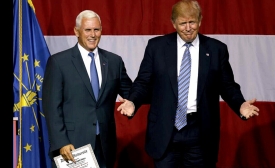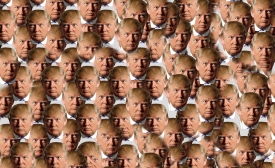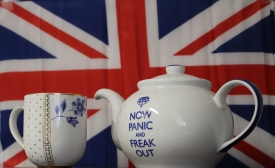Donald Trump

An RNC post-mortem from Mark Dillen.
Recent comments by Donald Trump in the New York Times should and will frighten Americans and our allies around the world. In response to questions about the North Atlantic Alliance (NATO) the Republican nominee suggested that he would abandon our friends and fail to protect our allies if they didn’t pay a high enough price.

Tara D. Sonenshine on Trump's foreign policy.

An analysis of the Brexit vote, Part 1.
How would you explain Donald Trump to a foreign audience? Could it be done in a coherent way? Could it be done at all? To citizens at home, this may be merely an intriguing exercise. But to our country's diplomats it is a daily challenge. As part of their jobs, especially if they are public diplomacy officers, as I was, they are charged with "telling America's story to the world," and this includes describing the leading figures and issues in an election year.
Mexican officials, concerned about negative impressions of Mexico in the United States, have been rolling out a strategy to improve the image of their country and show how the relationship between the two nations has been of “mutual benefit," [...] The strategy includes “cultural diplomacy,” grass-roots activism and the deployment of Mexican community...
Donald Trump, the Republican Party’s presumptive presidential nominee, has expressed deep skepticism about the value of U.S. alliances. His is a very 19th-century view of the world. [...] The real problem for the United States is not that it will be overtaken by China or another contender, but that a rise in the power resources of many others – both states and non-state actors – will pose new obstacles to global governance.
More people around the world know about the offensive remarks made by Trump who tweets. That is why this election campaign has undermined America’s plan to promote democracy abroad, through persuasion or by force. If Trump becomes the President, America’s public diplomacy campaigns will become even less credible.







